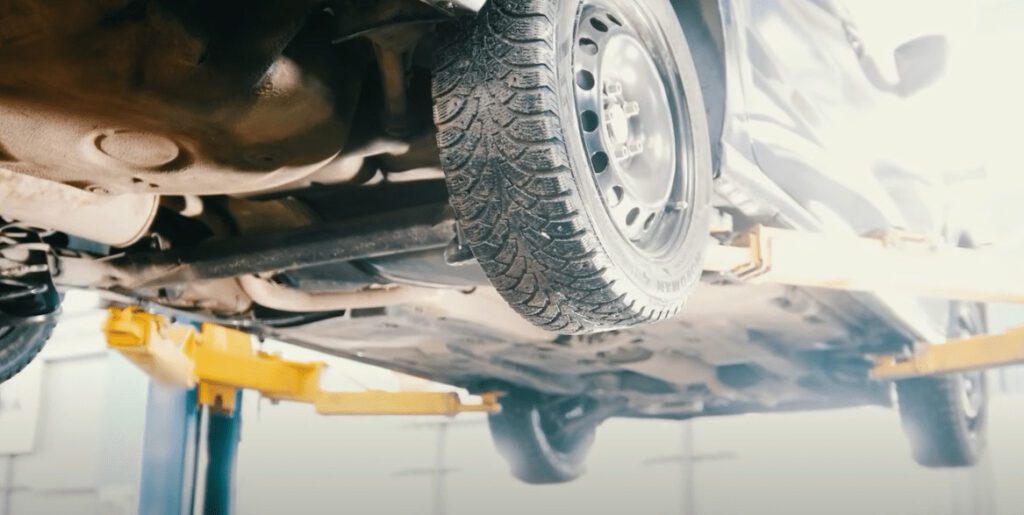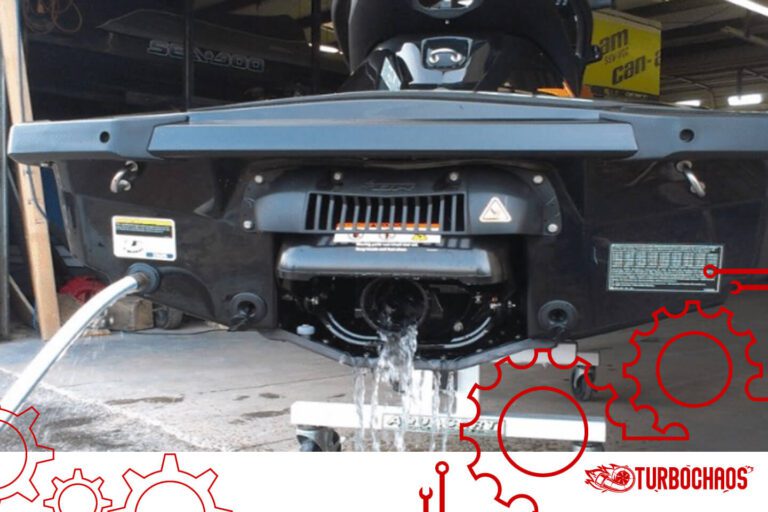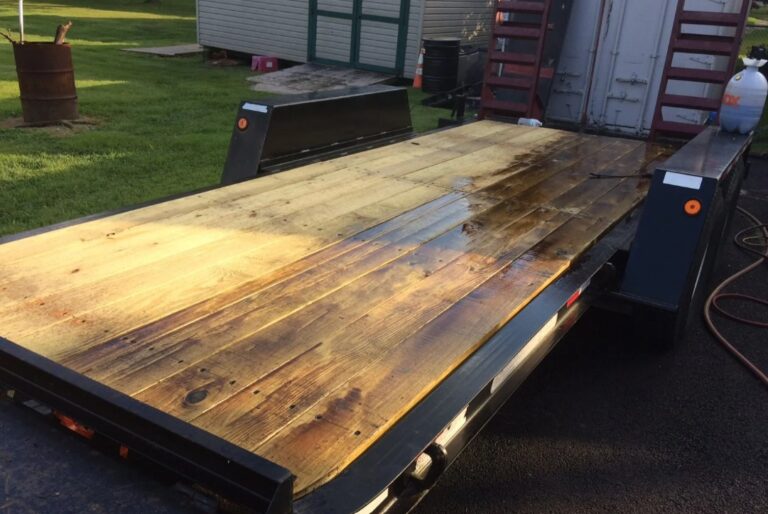Car Jerks After Transmission Fluid Change? Do This Quickly
Automatic transmissions are devices that frequently function without the need for the driver. Except occasionally topping off fluids, they rarely need assistance.
When there is a problem with your car’s ability to run smoothly, it can also be mysterious to some people.
Even some mechanics dislike dealing with gearbox problems since they are challenging. Why does my car jerk after transmission fluid change?
There are a lot of possible causes for cars that hop when put in drive. Among the frequent ones are:
- Worn-out components.
- Low transmission fluid.
- Filthy transmission fluid.
- Clogged transmission filters.
- Failed transmission pumps.
- Faulty or misaligned sensors.
Regardless of the source, it would help if you didn’t disregard this too long. You can end up stuck on the side of the road if you do that!
This article will review all the warning signs you need to be aware of to determine if your automobile is failing and will discuss the various problems that could be causing your car to jump when you shift it into drive.
Car jerks after transmission fluid change
During a transmission fluid replacement, there may be a few potential problems to solve if your car starts to jerk: Check the fluid level to ensure it is appropriate. The transmission may jerk if the fluid level is too low.

Jerk Issues When Putting the Car in Drive Explained
When you put your car in drive, if you notice any jerking or jumpiness, this is a sign that your car is having trouble shifting gears.
A failed sensor or shifted solenoid could be the issue today, as many cars have computerized engine systems.
If one of these possibilities is the cause, the solution might be quick and inexpensive. It would help to look closely at a few causes of automobile jerks.
- Low Transmission Fluid
For the system to function properly, fluid is used, and the proper amount of fluid is required.
You will start experiencing gear-changing problems if the transmission fluid amount drops too low.
You will feel a jerk due to the harsh shifting, which may affect how effectively your transmission system functions.
Your fluid level could only be low if there were a leak somewhere in the system. Your fluid level shouldn’t drop significantly because it is closed and doesn’t burn the fluid like an oil burner would.
If you notice a dark red fluid where you park your car, this indicates a leak in your transmission.
- Dirty Transmission Fluid
When your fluid is unclean, it can also impair how smoothly your car shifts. This causes your transmission system to deteriorate more quickly by introducing metal fragments or dirt into the fluid.
Particles in contaminated fluid can interfere with your transmission’s capacity to create hydraulic pressure.
As a result of the increased workload, shifting gears will be affected.
If your automobile is having problems going into drive and there are no signs of fluid leaks, check your fluid to determine if it is unclear.
If so, you should change your transmission fluid to see if that resolves the problem.
- Clogged Transmission Filter
Your transmission filter can become blocked if a big particle enters the system. Contrary to when the fluid is unclean, the issue might only be one or two particles.
The transmission pump will wear out more quickly if the filter is blocked since it will be under additional stress.
Additionally, it might alter the hydraulic pressure in the system or affect the transmission’s performance significantly.
Even if you recently changed or flushed your transmission, this only sometimes implies that you must do it again.
But you’ll want someone to look and determine what is blocking the pipe. Your ability to shift gears fast will increase if the particle can be identified and eliminated.
If the particle is difficult to see, you would be better off changing the filter.
To prevent problems like these in the future, it is advised to change the filter every time your transmission fluid is changed.
- Failing Transmission Pump
The transmission pump is next to the filter, and if it starts to malfunction, shifting gears may cause some hopping.
The engine will also make a loud whining sound audible while driving if your pump fails. If your check engine light detects a problem with the pump, it may also illuminate. If your filter is jammed, your transmission pump will have to work harder to do its job
This can result in it failing earlier than it ought to. A flaw that could result in pricey remedies is compounding issues
You don’t want the pump to stop working as a result of letting your filter become clogged.
Thus, to avoid problems of this nature, it is best to maintain a high level of awareness.
- Worn Out Parts
Your transmission system’s worn-out components could cause your shifting to jumpy for a simpler explanation
One of the main causes of feeling a jerk when you shift into driving in an older car is this! Older components don’t function as effectively and may lead to sluggish shifting or over-revving
Trying to put your automobile in drive may result in leaping and more unpredictable shifting. To determine which parts need to be changed, inspect them yourself or have a mechanic do so
If so, swap out the worn-out components and check if the issue still exists. If it disappears, you can be certain that the issue was limited to the parts.
Conclusion:
Maintaining your automobile only requires a little labor, but understanding which problems are causing that car jerks after transmission fluid change.
Numerous more issues can arise when the transmission isn’t shifting as smoothly as it once did.
So, you need to identify the precise reason why your car jerks and what you can do to fix it.
It should be rare to receive expensive remedies, and when you can identify the root of the issue, you can have it treated more affordably.
However, you want to take your time when changing. Your car’s transmission system is crucial, and the repair could be very pricey if it needs to be rebuilt.
Maintaining your gearbox will retain that lump cash in your pocket and delay the need to rebuild the system for a very long period.
When you need to figure out what makes your car jump when changing gears and how to fix it, use this article!
Frequently Asked Questions
Will your car jerk if your transmission fluid is low?
An unsteady, bumpy drive is one of the less typical signs of low transmission fluid. This may occur if your transmission fluid is dangerously low, and the check engine light may even turn on. When you accelerate, your automobile may shake, indicating that your gear oil level needs to be checked.
What causes the transmission to jerk?
You might find it difficult to shift gears, or the transfer may feel jarring if your car has trouble accelerating. There may be a jerk, clang, or thud sensation. Issues with the transmission fluid, vacuum, or malfunctioning sensor frequently bring this on. Older automobiles use the vacuum modulator valve to help them choose when to change gears.
Why is my car jerking when I accelerate?
Your car judders when you accelerate for a variety of reasons. Your car may have clogged catalytic converters, malfunctioning fuel pumps, faulty mass airflow sensors, cracked spark plugs, or a moisture buildup.
What does a weak transmission feel like?
Jerking and shaking are clear signs of a transmission issue. In automobiles with a manual transmission, gear grinding is a typical symptom. When shifting gears, automatic transmission failure frequently starts with some hesitancy. This might also be referred to as “slipping” in some circles.

Welcome to the exhilarating world of Matt Rex, a professional car racer turned renowned vehicle enthusiast. Immerse yourself in his captivating blog as he shares heart-pounding adventures, expert reviews, and valuable insights on cars, trucks, jets, and more. Fuel your passion for speed and discover the beauty of vehicles through Matt’s engaging stories and meticulous expertise. Join the ever-growing community of enthusiasts who find inspiration and expert advice in Matt Rex’s blog—a digital hub where the thrill of speed meets the pursuit of knowledge.







